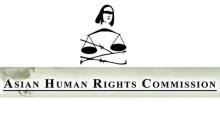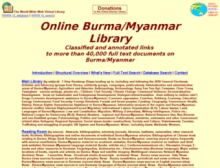Resource information
The Asian Human Rights Commission has since mid-2012 closely followed, documented and reported on the struggle of farmers in the Letpadaung Hills of central Burma against the expansion of a copper mining operation under a military-owned holding company and a partner company from China. After repeatedly being refused permission to demonstrate against the operation under the terms of the country's new antidemocratic public demonstration law, the farmers began public protests, which were met with a range of repressive measures, culminating in the night time attack on encamped protestors last November. The attack received international media coverage because the police fired white phosphorous into the protest camps causing extensive burns to protestors, the majority of them monks who had joined villagers in resistance to the mine project.
In recent months two reports have been issued, in Burmese, on the struggle against the mine. The reports make interesting reading because they represent very different perspectives and understandings of the issues for the affected villagers in Letpadaung. One is the official report of an investigative commission headed by Daw Aung San Suu Kyi, published in the 12 March 2013 edition of the state newspaper. The other is an unofficial report by the 88 Students Generation group and the Lawyers Network, Upper Burma, issued before the official report, on 21 January 2013. Whereas the latter report represents a genuine effort to identify the causes for the opposition to the mine and speak to the human rights questions concerned with events in Letpadaung of 2012, the former is little more than an exercise in playing at politics, and an attempt to sidestep and obfuscate the questions of human rights involved through the use of "information" that conceals more than it reveals...



